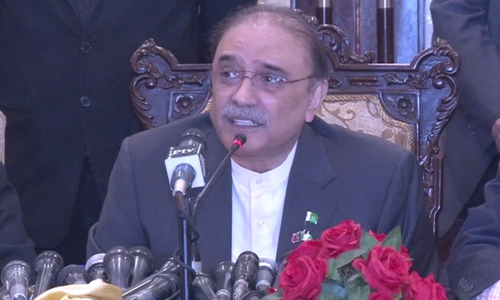The Supreme Court on Thursday handed the ownership of the Sheikh Zayed Hospital in Lahore to the federal government, ruling that the Centre reserves the right to build and run hospitals.
The split 4-1 verdict by a five-member bench, headed by Chief Justice Mian Saqib Nisar, said that the management of the Sheikh Zayed Hospital was transferred to the Punjab government without due legal process. The court ruled that the 18th Amendment's interpretation in this regard was wrong as the Centre had the right to build and run hospitals.
"No law can stop the transfer of this hospital to the Centre," the verdict said. "There should be a balance between the powers of provincial and federal government."
A dissenting note was written by Justice Maqbool Baqir.
The judgement said that the ownership of three hospitals and the National Museum of Pakistan in Karachi was also handed over to the Sindh government "illegally" and ordered that the management of all four hospitals as well as the museum be transferred to the Centre within 90 days. The provincial governments can request the court for an extension if the process of ownership's transfer is not completed in 90 days, the ruling said.
Yesterday, a five-member bench had dismissed Sindh government's appeal over a dispute in the management of three major hospitals in Karachi — namely the Jinnah Postgraduate Medical Centre (JPMC), National Institute of Cardio Vascular Diseases (NICVD) and National Institute of Child Health (NICH) — and ordered that their management be transferred to the federal government.
The court also ordered the federal government to reimburse the past year's expenses of the hospitals and museum borne by the provincial governments.
At a previous hearing, CJP Nisar had said it was difficult for the court to interpret the 18th Amendment in the absence of parliamentary debate on it. He said everything was kept under wraps at the time the 18th Amendment was being drafted. In developed democracies, advertisements were issued to solicit opinions of all stakeholders a year before any constitutional amendment, he added.














































